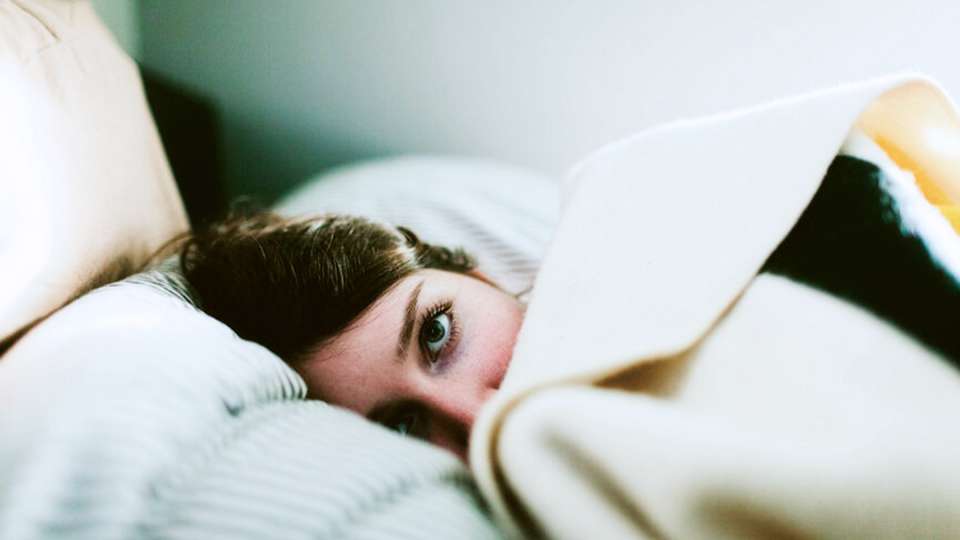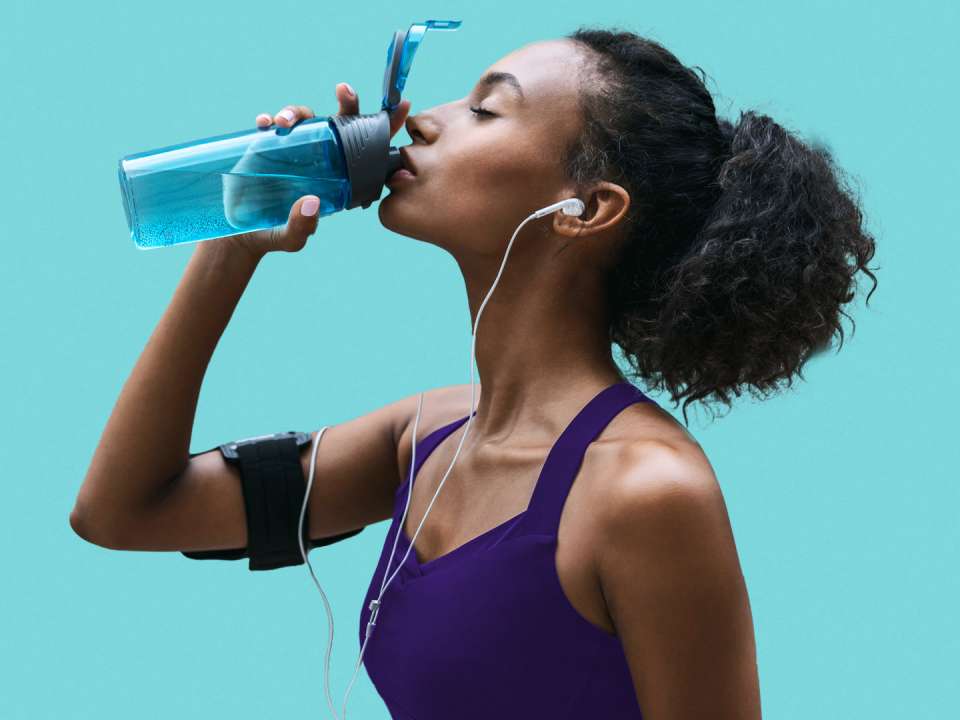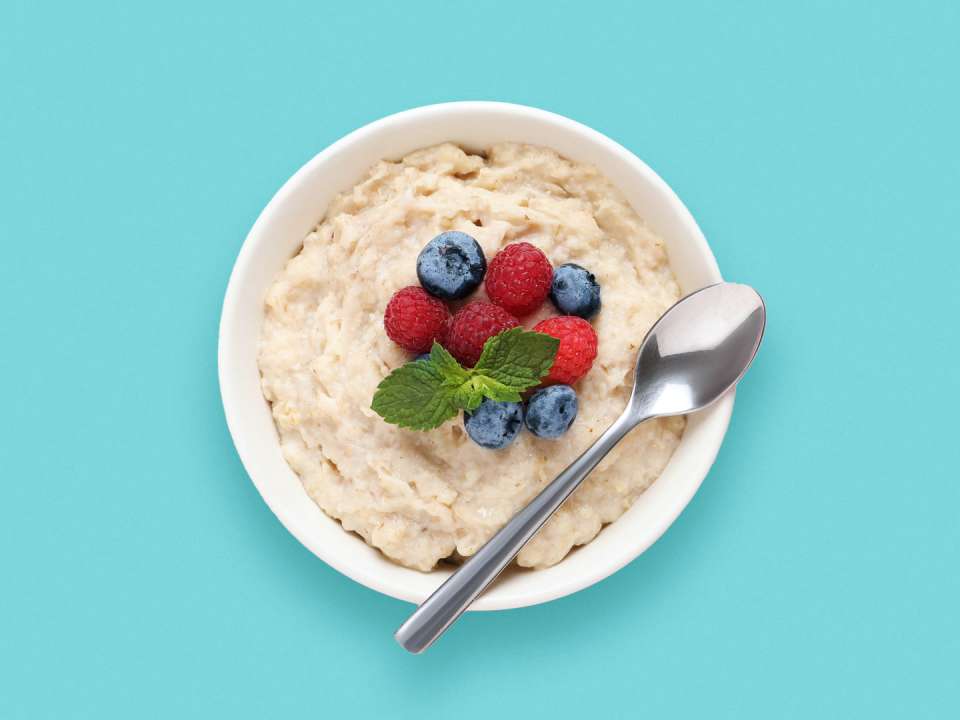
There’s a unique level of frustration that comes with being unable to sleep despite your best efforts. We’ve all been there.
Maybe you’ve tried using a sleep-tracking app to help manage your zzzs. In theory, this should be helpful: It can tell you when you’re not sleeping well and offer strategies for sleeping better.
In reality, though, that app could contribute to your nighttime unease.
Sleep-tracking apps can encourage perfectionism
No one is perfect, and that’s true of our sleep as well. Even if you generally have good sleep hygiene, or are trying to improve, there will be some nights when insomnia sets in.
If you put too much pressure on yourself to sleep well, it’s likely to become a self-fulfilling prophecy. Sleep-tracking apps can contribute to this, says Dr. Vishesh Kapur, a sleep medicine specialist and co-director of the UW Medicine Sleep Center.
“There’s a tendency for folks who have trouble falling asleep or staying asleep to try too hard and focus too much on sleep. That’s where these apps can just be an outlet for that type of tendency which makes it harder to sleep,” he says.
A recent case study report found that some people use sleep-tracking apps obsessively, which takes a toll on their sleep and mental health. This can lead to an unhealthy obsession with sleep that experts call orthosomnia.
How to know if sleep apps are a problem
For some people, sleep-tracking apps might just be a fun way to learn a little more about themselves, like tracking your steps on an activity tracker or getting a DNA test. For others, they can contribute to anxiety.
In the study, researchers noted that the apps can make people think they have a sleep problem when they don’t.
“Despite multiple validation studies that have demonstrated consumer-wearable sleep tracking devices are unable to accurately discriminate stages of sleep and have poor accuracy in detecting wake after sleep onset, we found patients' perceptions difficult to alter,” the researchers wrote.
Many of the apps looks scientific, with lots of data for you to look at. Kristen Lindgren, a clinical psychologist and expert in cognitive behavioral therapy (CBT) who practices at University of Washington Medical Center-Roosevelt, cautions people against taking all that data too seriously.
“These apps are notoriously unreliable. It’s not like getting on a scale and taking your weight,” she says.
If you’re just using an app for fun, more power to you. But if you notice it’s adding stress to your life, that you’re checking it constantly or that it’s distracting you on the regular, it’s probably time to reassess.
Micromanaging your sleep or having lots of data to examine may seem helpful, but sometimes simple solutions are better, Lindgren says. For example, in cognitive behavioral therapy specifically developed to treat insomnia, called CBT-I, therapists need far less information to develop a treatment plan, and it’s information that you can provide without needing or using an app.
A therapist will primarily ask questions about your sleep patterns, like when you go to bed and wake up, how long it takes you to fall asleep and how often you wake up during the night, among other things.
“CBT-I is first-line defense for insomnia,” Lindgren says.
How to take back your sleep
Here’s how you can improve your sleep without putting too much pressure on yourself.
Improve your sleep hygiene
There are things you can do to prep yourself for a good night’s sleep that don’t involve doctors or treatment.
First, make sure you don’t drink caffeine too close to bedtime, as it will keep you awake. Avoid using blue light-emitting devices (think smartphones and TVs) before bed. Set a sleep schedule so you go to sleep and wake up at the same time each day. And make sure your bed and bedroom are comfy, calming environments.
Don’t compare apps to sleep studies
Sleep-tracking apps aren’t yet robust enough to mimic the technology used in real-life sleep studies and sleep medicine research, Kapur says.
If someone is having trouble sleeping, doctors may suggest a sleep study, called a polysomnogram, which monitors your brain waves, brain and muscle activity, heart rate, eye movement, breathing and blood pressure during sleep.
Apps can’t measure most of those things, so any app you use isn’t going to give you data as accurate as a doctor could give you. This doesn’t mean you should stop using an app completely, but you should keep in mind the limitations.
Consider other contributing factors
If you’re having insomnia on a regular basis, it’s worth scheduling a visit to your doctor because there could be an underlying medical condition or other issue that’s causing the problem, Kapur says.
In that case, just using a sleep-tracking app isn’t going to be enough to help you.
Your doctor will be able to recommend tests that can help determine what’s going on and can refer you to a sleep specialist if necessary.
Trust your energy levels
If you wake up feeling rested and ready to start the day, but your sleep-tracking apps say you woke up several times during the night, trust your body and what it’s telling you over what your app says, Kapur recommends.
Your app can’t know everything about you, and ultimately what matters is having enough energy to sustain you throughout the day. As long as you have that, you’re good to go.
“Pay attention to how you feel in the morning and how you do during the day and how you felt your sleep was. That has more validity than a technological device and what it’s telling you,” Kapur says.

 Healthy ideas for your inbox
Healthy ideas for your inbox





